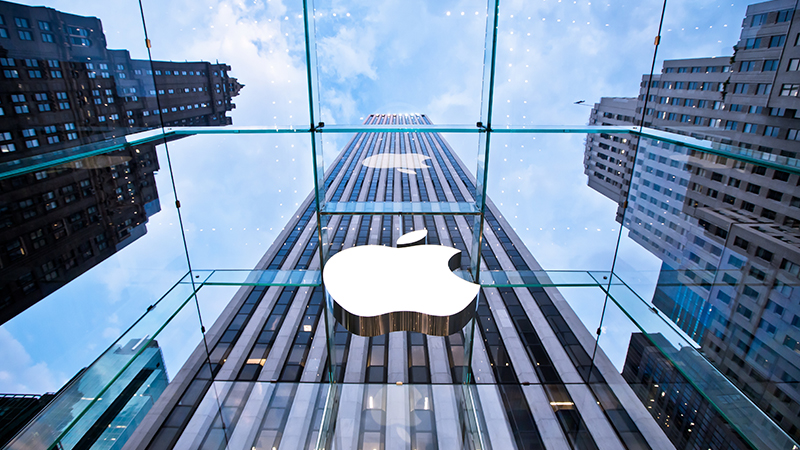If you’re in the process of negotiating a business deal, big or small, we’ve got a list that you can take inspiration (or consolation…) from. Read on for some of the best million-dollar windfalls and worst excruciating insolvencies created by corporate wheeling and dealing.
THE BEST
#1 Cash is The King
When Elvis Presley died in 1977 he left an estate valued at under US$5 million. It quickly began to erode. When Elvis’ father and first executor Vernon Presley died in 1979, his widow Priscilla took over the estate and began turning things around. While she fought everyone who was using his images illegally, her masterstroke was to open Graceland up to the public rather than sell it off to pay bills. This shrewd deal gradually paid dividends. It saw the King’s former home become one of the world’s top tourist attractions visited by millions each year and raking in vast sums for his estate.
#2 Deal du jour
Back in the 1800s, large parts of American soil were owned by foreigners. France was lucky enough to own Louisiana Territory, a huge landmass which sat in between the Mississippi and the Rocky Mountains. The land included the city of New Orleans along with important waterways for the US. So, in 1802 President Thomas Jefferson approached the French government to buy it back in a business deal. At the time, the French were fighting a few costly wars in Europe so agreed to sell the land quickly and cheaply. Jefferson picked up the territory, which would later become 13 different states, for the bargain bucket price of US$15 million.
#3 All day Buffet
Warren Buffet is arguably the world’s most successful investor, amassing a fortune worth billions which makes him one of the top 10 richest people in the world. While he has made many very smart business deals under the guise of his Berkshire Hathaway investment vehicle, his purchase of Coca Cola stock in the late 1980s stands out. At the time, critics dared to question his purchase. They argued that buying US$1 billion of the soft drink maker’s shares was on the pricey side. But to their surprise, the stock doubled in value in less than three years, highlighting Buffet’s eye for a bargain. By 2000, this holding was worth more than $12 billion. Oh, and it generates more than US$250 million a year in dividends alone.
#4 Big Macs and big bucks
Through a succession of clever deals, Ray Kroc helped turn McDonalds from a small, family-run hamburger stand into the world’s biggest fast food chain by sales and one of the most recognisable brands on the planet. One of Kroc’s smartest business deals was to set up franchise agreements, unheard of at the time. These allowed entrepreneurs to run their own burger joints while leasing the restaurants back from McDonalds at high rents. Franchisees were also encouraged to come up with ideas that would be adopted across the whole chain, such as the Big Mac and McMuffin. Although many probably wouldn’t thank the person who came up with the Ronald McDonald character.
#5 Apple brings back Jobs
Not many people know that Apple actually let Steve Jobs go in 1985 after a power struggle among directors. He went on to forge a highly successful career at Disney before Apple offered him a deal to come back in 1996. The company was close to bankruptcy at the time but within a couple of years Jobs had worked his magic and made it profitable. From there he went from strength to strength with world-changing inventions including the iPod, iPhone and iPad, rocketing Apple to become the world’s most valuable listed company. Arguably the greatest corporate turnaround in history wouldn’t have been possible had Apple’s board not struck a deal to bring Jobs back.
THE WORST
#6 Car trouble
Germany’s prestigious Daimler badly regrets taking over US car-manufacturer Chrysler in 1998 for the vast sum of US$40 billion. The logic made sense – create a Trans-Atlantic car-making powerhouse that could take on all comers, both American and European. However, through cultural clashes, operational glitches and a severe lack of creativity, the deal soon went sour. The merger wasn’t helped by timing. It came during a global economic slowdown which saw car sales decline. Daimler decided to offload Chrysler for the heavily discounted price of $6 billion to a private equity outfit in 2007.
#7 Out of Time
Catastrophic is a polite way of describing TimeWarner’s doomed merger with AOL, which bosses spent years denying was a failure. The two joined forces in 2000 at the height of the dotcom bubble, merging old and new (print and the internet). It was proclaimed to be a media revolution. Sadly this US$11 billion vision of the future soon became a corporate nightmare. The dotcom bubble burst leaving AOL naked when the tide went out. Future advertising revenues had been massively overinflated and the business deal gradually became the biggest corporate flop in American history. After many years of trying to make the marriage work, the two parted ways in 2009 with their reputations in tatters.
#8 Microsoft in the head
US billionaire and former presidential candidate Ross Perot was given the chance to buy Microsoft, back in 1979, when it was just a small technology company but on the verge of the big time. He put a low-ball deal on the table for Bill Gates to consider. It was eventually rejected. Perot doubted Gates’ revenue forecasts so decided not to come back with an improved offer. The rest is the stuff of corporate folklore as Microsoft grew, and grew and grew, along with Gates’ bank account.
#9 Singing the blues
Back in 1962 four young men named John, Paul, George and Ringo took a trip to London to play a demo for Decca Records with their band The Beatles. The bosses at Decca didn’t like the music and rejected the Fab Four. Instead, they offered a record deal to Brian Poole and The Tremeloes. Sadly, Brian and the lads never went on to become the world’s biggest band raking in billions along the way for themselves and their record label. Who’s the Walrus now, Decca?
#10 A red devil
While Sir Alex Ferguson will go down in sporting history as one of the world’s greatest ever football managers, his record with business deals is not quite as lofty. In particular, he scored an own goal with the purchase of Argentine superstar Verón in 2001 for a staggering £28 million. Verón, a midfield maestro at former club Real Madrid, was a flop right from the kick-off. He played 73 painful-to-watch games, scored just seven goals and was sold two years later to Chelsea for half the price. It worked out at £4 million per goal, although Verón wasn’t a striker in fairness. Not much of a midfielder either.
Keen to read more stories about money? See our Work & Business section.
Don't miss out on the latest events, news and
competitions by signing up to our newsletter!
By signing up, you'll receive our weekly newsletter and offers which you can update or unsubscribe to anytime.




